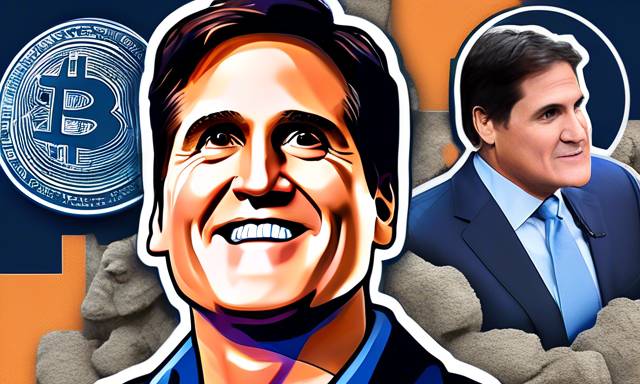Are Regulations Crushing the Crypto Dreams?
Hey there! So, you’re diving into the crypto market, huh? That’s awesome! But before you jump in feet first, let’s chat about something really important that’s been making waves in the industry—the recent criticisms of the SEC and how it’s impacting the crypto landscape. You might have heard of Mark Cuban; yeah, that billionaire guy who loves crypto. He’s been pretty vocal about his issues with the SEC under Gary Gensler, and honestly, it’s not just noise. There are real implications here for potential investors like yourself.
Key Takeaways:
- Mark Cuban criticizes SEC’s regulatory approach, saying it harms crypto innovation.
- Cuban believes regulations could have prevented the collapse of FTX and 3AC.
- Ongoing conversations around regulatory clarity are crucial for the market’s future health.
SEC’s Approach Under Fire
Cuban’s recent rants about the SEC are rooted in a solid concern. He believes the whole regulatory approach—what he calls "regulation via enforcement"—is a fundamental mistake. Instead of establishing clear rules for everyone to follow, the SEC has mostly taken action by suing companies after things go wrong. Seriously, it feels like they’re playing whack-a-mole rather than genuinely guiding the industry.
He pointed out that, in his view, if there had been clear regulations from the start, companies like FTX and Three Arrows Capital would still be in business today. Instead, what we got was confusion and uncertainty. That’s like going into a video game blindfolded. It’s frustrating, right?
Imagine if the SEC had said, “Hey, if you want to loan out crypto assets, you need to have 95% collateral,” similar to regulations in Japan. FTX would’ve been operating under responsible parameters rather than going belly up. I mean, let’s be real—an ounce of prevention is worth a pound of cure. Having structured guidelines could have saved a lot of heartache and billions in losses.
A Political Angle
Cuban hasn’t shied away from expressing his views on the political side of this mess either. He mentioned that he’d talked to Vice President Kamala Harris, emphasizing how bad Gensler’s leadership looks for the Biden administration. If this were a reality show, I can imagine it being a dramatic moment—“Get off the stage, Gary!”
The important takeaway here is that if someone as influential as Cuban is saying that the political powers recognize the havoc wreaked by Gensler, it might just spark a reevaluation of the SEC’s tactics. And trust me—this could shape policies that affect every single coin in the market.
What This Means for Investors
Alright, enough about Cuban for a second. Let’s focus on what all this means for you as a potential investor. If you want to dip your toes into crypto, keep an eye on the regulatory landscape. Here are some practical tips:
-
Stay Informed: Follow news on regulatory changes. If the SEC softens its stance, or if new guidelines emerge, that could create new investment opportunities.
-
Diversify: With so much uncertainty, it’s wise to diversify—not just across different cryptocurrencies but also across asset types. Balance is key.
-
Risk Management: Be aware that the crypto market is volatile and influenced heavily by regulatory news. Have a strategy for dealing with this volatility, like stop-loss orders.
- Engage with the Community: Network with other crypto enthusiasts. Join forums, attend webinars, or even local meet-ups. Sharing insights can give you a heads-up on trends before they become apparent to the general public.
Ending Thoughts
So, what’s your take? Are you as concerned as Cuban about the SEC’s current approach, or do you think it will stabilize as the market matures? The crypto scene is so fascinating and complex, like a super intricate puzzle. On one hand, you’ve got groundbreaking technology and incredible financial opportunities, but on the other hand, regulatory hurdles can feel like being stuck in the slow lane during rush hour.
As we move forward, it’s crucial to strike a balance between innovation and regulation—something that benefits both investors and developers. When we consider the future, let’s ask ourselves this: can regulations foster an environment where crypto can thrive rather than merely survive?





 By
By


 By
By
 By
By